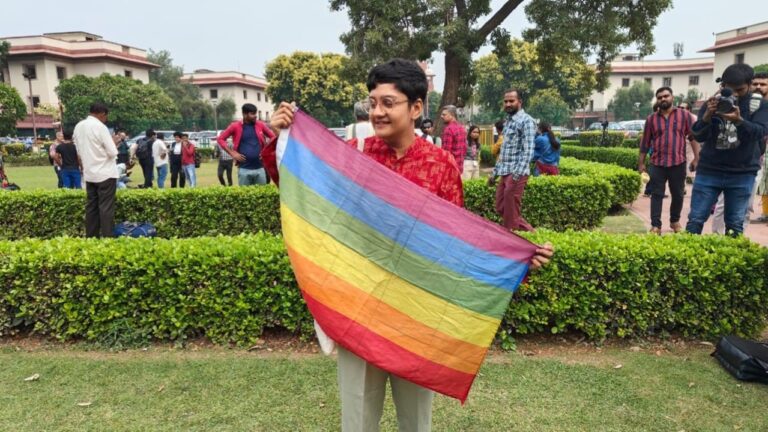
In a landmark decision, India’s Supreme Court, on a momentous Tuesday, opted not to legalize same-sex marriage, deferring this significant social issue to the parliament’s jurisdiction. This unanimous verdict arrived as a crushing blow to the vast LGBTQ community in India, unfolding five years after the same court abolished a colonial-era ban on gay sex.
The government, led by Prime Minister Narendra Modi, advocated the position that same-sex marriage was a matter for the legislature, not the judiciary, as it believed such a monumental decision should be aligned with India’s traditional family structure of a husband, a wife, and children.
This pivotal judgment emerged as the response to over a dozen petitions that were meticulously filed over the past year. The bench, presided over by Chief Justice D.Y. Chandrachud, engaged in thorough deliberations during the months of April and May, eventually rendering their verdict this Tuesday. Chief Justice Chandrachud aptly pointed out that there existed both agreement and discord on the extent to which same-sex marriage should be recognized. The complexity of the issue was underscored by the fact that four of the five judges issued separate judgments.
Chief Justice Chandrachud emphasized that the court’s role is to interpret, not create, the law. Furthermore, he rejected the notion that being gay is an attribute of the urban elite. Instead, the court directed the matter to a panel, as proposed by the government, to address the human concerns of same-sex couples.
This panel is expected to consist of experts well-versed in understanding the social, psychological, and emotional needs of individuals within the gay community. Its responsibilities include exploring avenues for granting same-sex couples access to various services and facilities, such as joint bank accounts and pensions, which are currently unavailable to them. While Chief Justice Chandrachud and another judge raised the possibility of recognizing unions or civil unions for same-sex couples, three other judges did not concur.
Judge Ravindra Bhat, among the dissenting judges, asserted, “Marriage is a social institution. The state does not confer marital status, and the idea of marriage is not a fundamental right.”
As the news of the verdict spread, members of the LGBTQ community were seen leaving the court in tears, consoling one another. Uday Raj Anand, a petitioner in the case who, along with his same-sex partner, had hoped for a clearer direction from the court, expressed his disappointment, saying, “It feels a bit shocking not to have even got that much.”
This decision places India in the company of many Asian countries that have yet to fully embrace same-sex marriage, contrasting with Taiwan and Nepal, which have recognized it. Activists argue that while the 2018 ruling abolishing the ban on gay sex affirmed their constitutional rights, the absence of legal backing for same-sex unions is a stark inequity when compared to the privileges enjoyed by heterosexual married couples.
The verdict, while disappointing for many, reiterates the significance of public discourse and policy-making in shaping the future of this vital human rights issue.